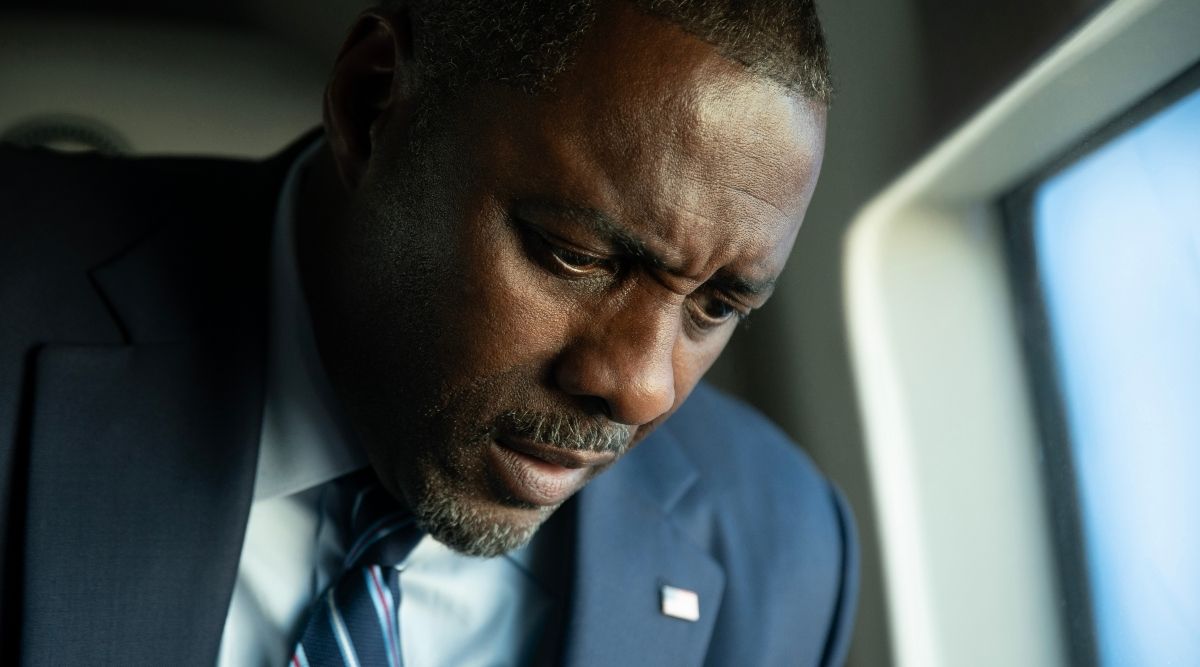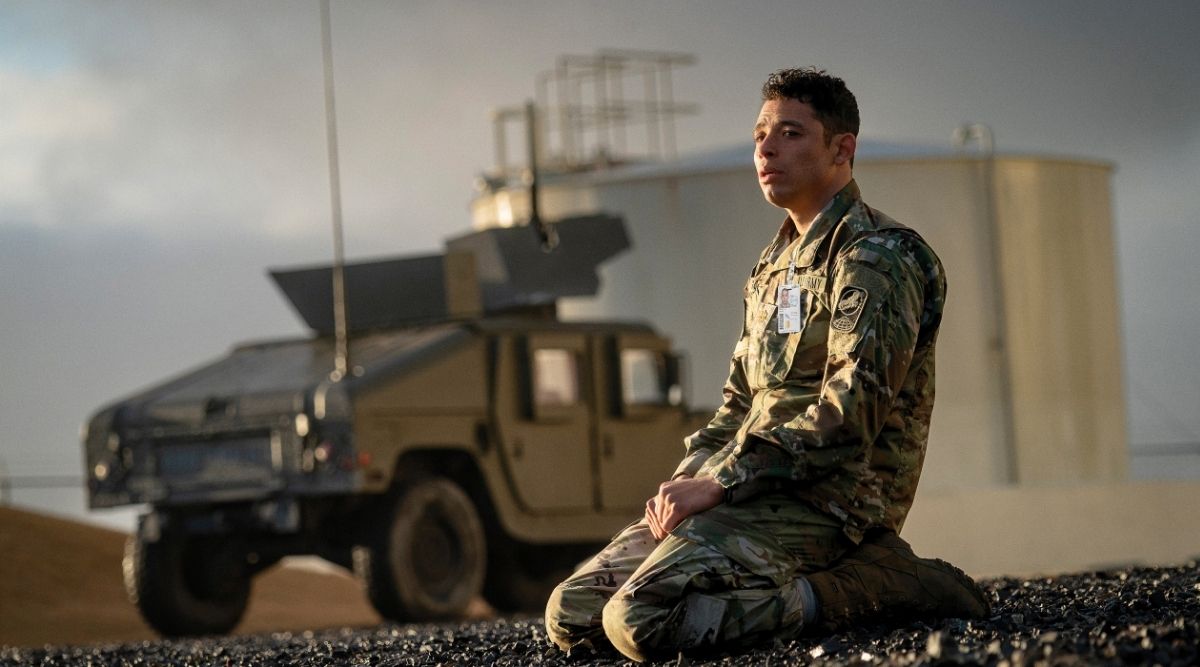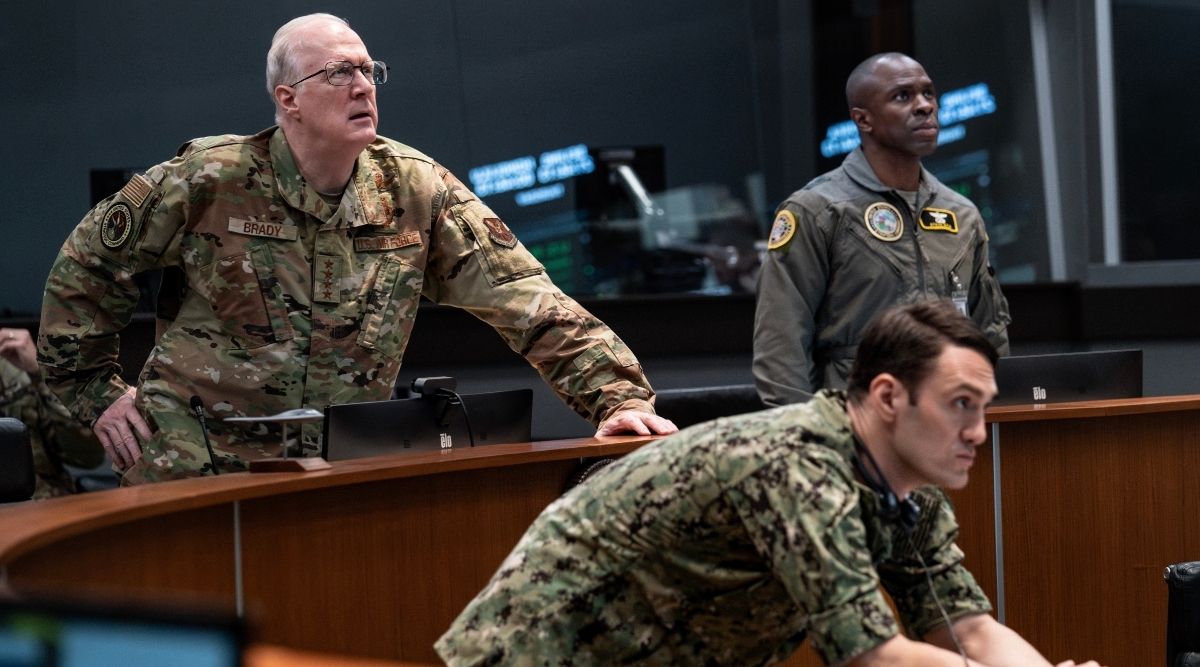We live in uncertain times. But most of the movies about this uncertainty are much too obvious about it. They lampoon specific people or make timely references that don’t hold up over time, if they ever work in the first place. Directed by Kathryn Bigelow and written by Noah Oppenheim, A House of Dynamite is a very different kind of movie about uncertainty.
With a cast that includes Idris Elba, Rebecca Ferguson, Gabriel Basso, Jared Harris, Tracy Letts, Anthony Ramos, Moses Ingram, Jonah Hauer-King, Greta Lee, Kaitlyn Dever, and more, A House of Dynamite is broken into three equally tense and revealing parts. In each part, characters are introduced with care, the doomsday scenario is introduced, and the various parties of the U.S. government begin to respond to a potential nuclear attack from an unknown source.
A House of Dynamite is built upon a glowing cast of well-developed characters.

Each of the movie’s many characters is given a full life. They have partners, kids, dilemmas and interests outside of work. The brief moments of setup for everyone go a long way in humanizing them. From the people stationed at a military outpost in Alaska, to the civilian trying to fix a TV in the White House, to the President (Idris Alba) himself, everyone is fleshed out. They’re all real and relatable.
The thing that is essential to A House of Dynamite’s success is that it doesn’t take the cheap route with any of its characters by making them into caricatures or facsimiles of real-life political figures. While that could have been a quick way to help the audience understand exactly who the movie is dealing with, letting these characters exist outside of contemporary politics is what makes them so watchable.
This doesn’t mean that the movie isn’t steeped in the very real fears, failures, and offenses that comprise modern American life and politics. In fact, A House of Dynamite is so tense precisely because it feels like it could be happening in real life at the very moment you’re watching it on screen. Yet, the movie accomplishes all this without implicating or uplifting a specific political party, ideology, or faction of public thought.
A House of Dynamite is a rare military film that doesn’t valorize war.

It does so because it is such a human story. People make mistakes and try to correct them, just as well as people do exactly the right thing without it working. Characters who are seen through a video conference screen in one act of the movie seem like completely incompetent barriers to collective safety, only to then be seen in the situation again from their perspective in another section.
Each time characters are repeated in subsequent segments, something new is revealed, whether it’s their personal shortcomings or the bureaucratic barriers that prevented them from being heard properly in the earlier scenes. Nobody walks out of A House of Dynamite looking like a monster. Everyone is doing their absolute best to protect lives and minimize the repercussions of this sudden war after the bomb does or doesn’t strike U.S. soil.
But it’s never jingoistic either. The movie doesn’t vilify a certain enemy or raise the notion that the U.S. should arm itself in certain ways. Neither is the movie attempting to valorize any particular kind of person in the military command, nor to raise up anyone’s actions within this unthinkable situation inappropriately. It’s quite a feat in a movie about the U.S. military to manage not to incidentally glorify war, the institution, or the people within it.
The tension is even stronger because it’s not set in our current, polarized reality.

Moreover, A House of Dynamite is not set in our current reality, where faith in U.S. institutions is utterly polarized. Rather, the movie digs at a deeper, more fundamental fear, where even if all the right people were in all of the right positions of power, it may still not be enough to prevent nuclear disaster. With each section of the movie, the fear and tension only increase, despite knowing how the scenario will unfold each time. A sensational score by Volker Bertelmann elevates the tension.
All the ways A House of Dynamite’s power emanates from its lack of specificity and open-ended nature are precisely the reasons some audiences will reject the movie. In a polarized political landscape, people may try to cast their own politics onto the movie, or they may see an oppositional portrait of America where one does not, in fact, exist.
The movie raises far more questions than it answers. It begs you to consider not only the potential repercussions of a world armed to the teeth with nuclear assets, but also the thin layer of human beings trying to do their jobs under tenuous circumstances that separates our everyday life from the end of the world as we know it. For some, a lack of resolution will make A House of Dynamite hard to bear.
A House of Dynamite stands tall as one of the best depictions of the modern political climate.

But how can a movie offer solutions to a problem humanity hasn’t solved yet? How can it depict concretely the enduring effect of a nuclear attack in modern times? If A House of Dynamite attempted to offer answers to these unanswerable questions, it would completely fall apart. Its strength is in the uncertainty.
Not knowing what will happen next builds dramatic tension, but it is also the key ingredient to building verisimilitude. If we can’t know what would happen next, should this happen in real life, as it could at truly any moment, then the movie cannot offer comfort where no comfort is earned.
As a result, A House of Dynamite stands strong as one of the best depictions of the modern political climate on film. It builds a large cast of characters with great depth and deftly depicts the greatest political tensions of our age.
A House of Dynamite is playing in select theaters October 10th and streams exclusively on Netflix October 24th.
A House of Dynamite
-
Rating - 8.5/108.5/10
TL;DR
A House of Dynamite stands strong as one of the best depictions of the modern political climate on film.







